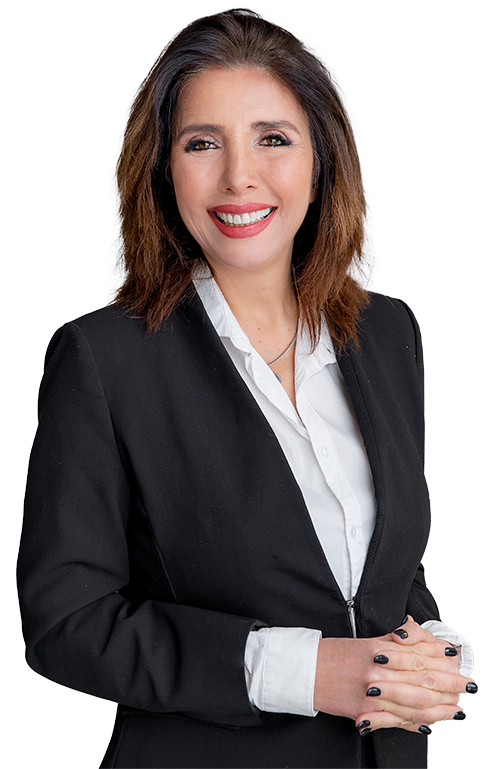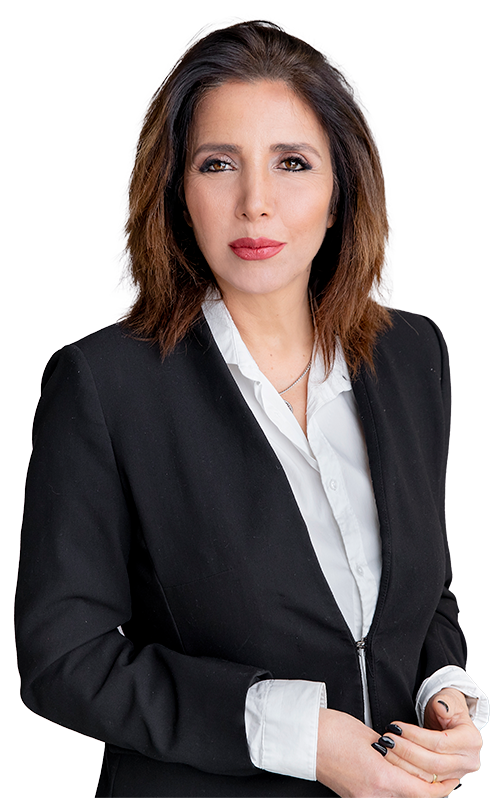The Law of Inheritance establishes various principles to ensure that the will is made entirely of the free and true will of the testator, without any influence or pressure from external parties and without any obligation on the part of the testator.
The law also states that a person may choose the language in which his will will be drawn up, as long as it complies with the basic rules of the will’s integrity.
The Law of Inheritance is an in-depth document that encompasses in its sections all the issues that concern the writing of a will. In order to create a legal, proper and optimal will, one must be familiar with all the sections of the law, therefore it is recommended to consult an expert will lawyer.

Who may make a will?
Every person has the right to decide if he wants to make a will and if he chooses to do so – what type it will be.
In specific cases that will be specified immediately – a person is forbidden to command (that is – make a will):
- Minors
- Illegal
- A person with a mental or intellectual disability – that is, a person who, due to a certain limitation, is not aware of the meaning of making a will
Wills and Inheritance Attorney Rachel Schachar explains what is recommended to be done if there is concern about the extent of the mitzvah:
“If the testator fears that it may be claimed that he was not clear-headed when making the will, it is advisable that he apply, close to the time of making the will, for a medical opinion that confirms his fitness for the team. Also, I recommend that elderly or sick people who wish to make a will, go for a medical opinion which indicates kosher for the team on their own initiative.”
It should be noted that the degree of clarity and understanding of the meanings can be contested even in retrospect – instructions that do not make sense in a person’s will can raise doubts as to his competence status at the time of its writing. For this reason and many more, it is recommended that a wills lawyer be involved in the process, as he will be able to save heartache and instructions that are subject to illogical interpretation.
What is the role of a wills attorney?
A wills and inheritances lawyer has a number of key points in wills proceedings in which his presence is critical. We will explain them briefly:
- Objections to the will
A well-known phenomenon is the objection of a person excluded from a will and his uncompromising attempt to find flaws in it in order to invalidate it. Such a person will immediately go to a wills lawyer who will help him in that search. If the will is drawn up with a professional will lawyer, the chances of disqualifying it are significantly lower since he is aware of all the possible loopholes that the drafting of the will can create. Because of this, a professional lawyer knows how to protect the will against future objections in the best way, which a citizen does not know how to carry out alone. - Emphasize what is important
Many people apply to write their will independently as they are confident in their will and written abilities and they indeed produce a spectacular document. But when we come to execute a will, it is the content that is checked and the nature of the instructions in it, and therefore it is not sufficient to use a sample wording from the Internet. You need a wills lawyer so that the will is yours. - The legality of the will
A wills lawyer who specializes in writing and editing personalized wills is one who knows the legal rules and sections of the field. Through the advice of a wills lawyer, you can be sure that the will will be legal and meet all the basic conditions and rules set by the inheritance law and other laws.
Why do you need a will?
In other words, the will is our last words that will be heard – our requests, our attitude, and even our feelings. This is the last mark of many of us on our environment and our family, and the desire to make this event meaningful – understandable and required. Making a will makes it possible to be sure that after his death, his property will be distributed and managed exactly according to his wishes.
In addition to property, the will is also a document that invites the testator to convey a personal message that does not have legal validity, and it is about feelings, values, etc. that he wishes to be remembered and passed on. There are people who choose to express their attitude by dividing their estate differently among the heirs and even donating part of their estate to various associations and organizations that reflect the mindset they advocated.

Why do you need a will?
In other words, the will is our last words that will be heard – our requests, our attitude, and even our feelings. This is the last mark of many of us on our environment and our family, and the desire to make this event meaningful – understandable and required. Making a will makes it possible to be sure that after his death, his property will be distributed and managed exactly according to his wishes.
In addition to property, the will is also a document that invites the testator to convey a personal message that does not have legal validity, and it is about feelings, values, etc. that he wishes to be remembered and passed on. There are people who choose to express their attitude by dividing their estate differently among the heirs and even donating part of their estate to various associations and organizations that reflect the mindset they advocated.
What happens to the estate of a deceased person who did not write a will?
The Law of Inheritance determines the manner in which the heir to the estate of a person who did not make a will in his lifetime. The legislator established these rules of inheritance so that they would be as similar as possible to the wishes of people who would like to distribute their property after their death. The legal heirs are the family members left by the deceased, according to the degree of family kinship:
- The testator’s children – or their descendants if deceased.
- The testator’s parents – in case the deceased left no children.
- The parents of the testator’s parents (grandparents) – in case the deceased left no spouses, parents or siblings.
In order to exercise the right of inheritance, an application for an inheritance order must be submitted. If the deceased has no family members left among those specified, his assets are transferred to the ownership of the state.
What types of wills exist in the State of Israel?
The law establishes 4 possible ways in which a person can make a will, so that it has binding legal effect:
- Handwritten will
- Will with witnesses
- Will before an authority
- Oral will
Each will has its own highlights and each person may choose them. While it is necessary to pay attention to adhere to the basic rules of each one so that the will is legal and enforceable. We will expand on each of them and note that a witness will is the most popular and recommended.
A testament to witnesses
This will is usually drawn up with the help of a lawyer and its basic conditions according to the inheritance law are:
- Two additional witnesses to the mitzvah itself.
- A written will as a document (printed or written)
Who are the witnesses? What is their role?
The role of the witnesses and the manner in which the role is fulfilled is a critical issue that has implications for the validity of the will and its ability to be exercised. The witnesses are the two people who witness the making of the will by the mitzvah and hence their name – witnesses of the existence of the will. This is not a symbolic role but an active role that requires signing the document itself.
The witnesses are not responsible for verifying the testator’s competence to draw up his will, but they must be evidence that he was indeed the one who drew up and signed it. A witness to the execution of a will must be aware of the content of the will and be sure that the witness understands it as well.
The statement of the witnesses, witnesses to the existence of the will, may serve as a significant tool for clarifying the circumstances of the drafting of the will in court, and even lead to the disqualification of the entire will, if it turns out that they did not perform their duties properly.
In the event that the witnesses to the execution of the will were not present when it was drawn up or when it was signed – it lacks a fundamental element which is the witnesses and therefore it is not valid and invalid.
In the event that the witnesses to the execution of the will were present when it was drawn up but not when it was signed – the court can be convinced in the investigation process that it is a true will and that the reason for the absence of the witnesses’ signature is a true reason.
A witness to a will cannot have any interest in the will.
Handwritten will
Any person who wishes to draw up a handwritten will independently may do so, although it is recommended to draw up a will with a lawyer. The data of the courts in Israel show that we are a nation that likes to sue for any reason and therefore a will that is closed from all directions is required. The basic conditions of this type of will are as follows:
- The will must be written entirely in the testator’s handwriting. Not for printing.
- The will must include a date.
- The will must be signed by the testator.
This is the “easiest” will to execute and, accordingly, it is the “easiest” will to oppose, since it does not include witnesses and its authenticity and the competence of the mitzva can be more easily challenged when it was written.

Will before an authority
A will before an authority is a will that is submitted to a legal entity or drawn up through it. This person can be a judge, a member of a religious court, a registrar for inheritance matters, a court registrar or a notary.
Such a will can be made in writing and submitted to one of the aforementioned parties, or the content of the will can be played in the party’s ears so that he will register it.
Oral will
The law allows a person who does not have the possibility to make his will in one of the three previous ways, to make his will orally. The person who is allowed to make his will orally is a person who is on his deathbed, and he can present his will to two witnesses who understand him (with an emphasis on understanding the language he speaks). He has no obligation to draw up his will as a written document due to the aforementioned circumstances.
The law also allows the person who feels his life is in danger to choose this type of will.
The witnesses in whose ears an oral will is heard must write down the words of the mitzva as accurately as possible in a memory of words, as quickly as possible.
It should be noted that if a month has passed since the wording of the will, and the mitzva remains alive, his oral will is revoked. Another important difference from the other types of wills is that the witnesses can have an interest, since no one chooses the terms of his departure.
Why is it important to pay attention when drafting a will?
Attorney Schachar lists a number of important points for drafting a will:
- The language of the will must be clear and logical, to avoid as much as possible misunderstandings regarding the intentions of the will.
- The details identifying the heirs and the details identifying the estate should be accurate and clear.
- A person named in the will as an heir/beneficiary cannot be present or be a part of the process of drawing up the will.
- Conditions appearing in the will should be legal, reasonable and well-founded to prevent their cancellation by a court.
There are many more highlights and explanations for writing a legal and proper will, and therefore we strongly recommend the help of a professional and experienced will lawyer.
Defective will
Defects in the will can often be corrected and corrected, since the court recognizes the possible mistakes that this procedure entails and the goal of the legislator is first of all to try and fulfill the will of the will. Obvious mistakes such as omission of a number/ scribe error/ lack of date in wills that are not in writing, etc. – are correctable and understandable.
However, there are cases where a defect in the will can invalidate it completely or cancel a provision from the will. The court can cancel instructions from the will according to the following reasons: an unclear instruction / an impossible instruction to carry out / an illegal or immoral instruction / an instruction that serves the interest of any of the participants in the process of writing it.
If the cancellation of the instruction resulted in the cancellation of the entire will, the inheritance will be divided among the legal heirs, according to the rules established in the inheritance law.

Interpretation of a will
The purpose of the will interpretation procedure is to understand from the scriptures the true will of the testator. When the will includes ambiguous content, the judge may ask to look at the external circumstances of the case.
Attorney Rachel Schachar explains how to interpret a will if necessary:
“In cases where the content of the will (“the language of the will”) can be interpreted in several ways, the most important rule is to interpret the will according to the intent and desire of the testator, as it is implied from the circumstances. Only when the intent of the will is not clear from the will itself, external circumstances are turned to which can help in its meaning.”
Attorney Rachel Schachar
Hence, it is of great importance to draw up the will and formulate it well, and therefore we recommend the help of an expert wills and inheritance lawyer.




